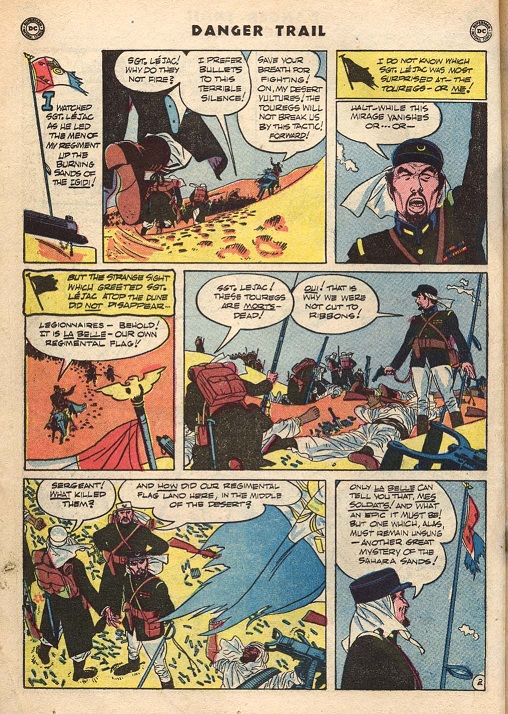
I got Genius, Isolated: The Life and Art of Alex Toth last week and have been losing myself in that book and Toth’s art ever since. The page about is one example, seeing that reproduced in a huge format on crisp, clean paper where you can savour each detail makes me giddy with excitement. You cannot help but love Toth’s sense of composition, the ease and elegance he lays out a page, places his panels, places his figures within the panels, always drawing your eyes to the next element. But there also the figures themselves; just look at how the sergeant stands in the middle right panel, or the three legionaires in the bottom left one. Not to mention the line work and the use of black. It’s no wonder that this story, when it came out back in 1950 immediately became a guide and inspiration for almost all other cartoonists working in comics. It’s the perfect example of a style of comics storytelling, a distillation of everything the great comic strip cartoonists like Noel Sickles, Frank Robbins or Milton Caniff had taught Toth, everything he had absorbed looking at their art.
It’s just a shame it’s used in service of such a pedestrian story.
Which could be the theme for Toth’s entire career. He never really had a series or character he was synonymous with, but moved from assignment to assignment, taken meticilous care on each, whether it was Black Canary or Hot Wheels. And that’s a disappointment when you start reading those stories reprinted in Genius, Isolated, rather than just drool over the art. The writing is so dull, or bland or actively bad that it makes the art worse. Comics has always been an unequal partnership of writing and drawing, with good art more able to overcome bad writing than the other way around, and Toth was the greatest example of this.
There is always a tension when talking about comics between story and art, where I sometimes feel that despite our love for it, the art often loses out to the writing. For us fans and critics who ourselves can’t draw our way out of a paper bag, it is after all so much easier to talk about the plot and script than to talk about the nuances of artwork. We’re used to talk about the former, often lack even the vocabulary to talk meaningfully about the latter. A book like Genius, Isolated: The Life and Art of Alex Toth rubs our noses in this deficit. You have to talk about Toth in terms of his art and not worry too much about the banality of the stories he used it on.
No Comments